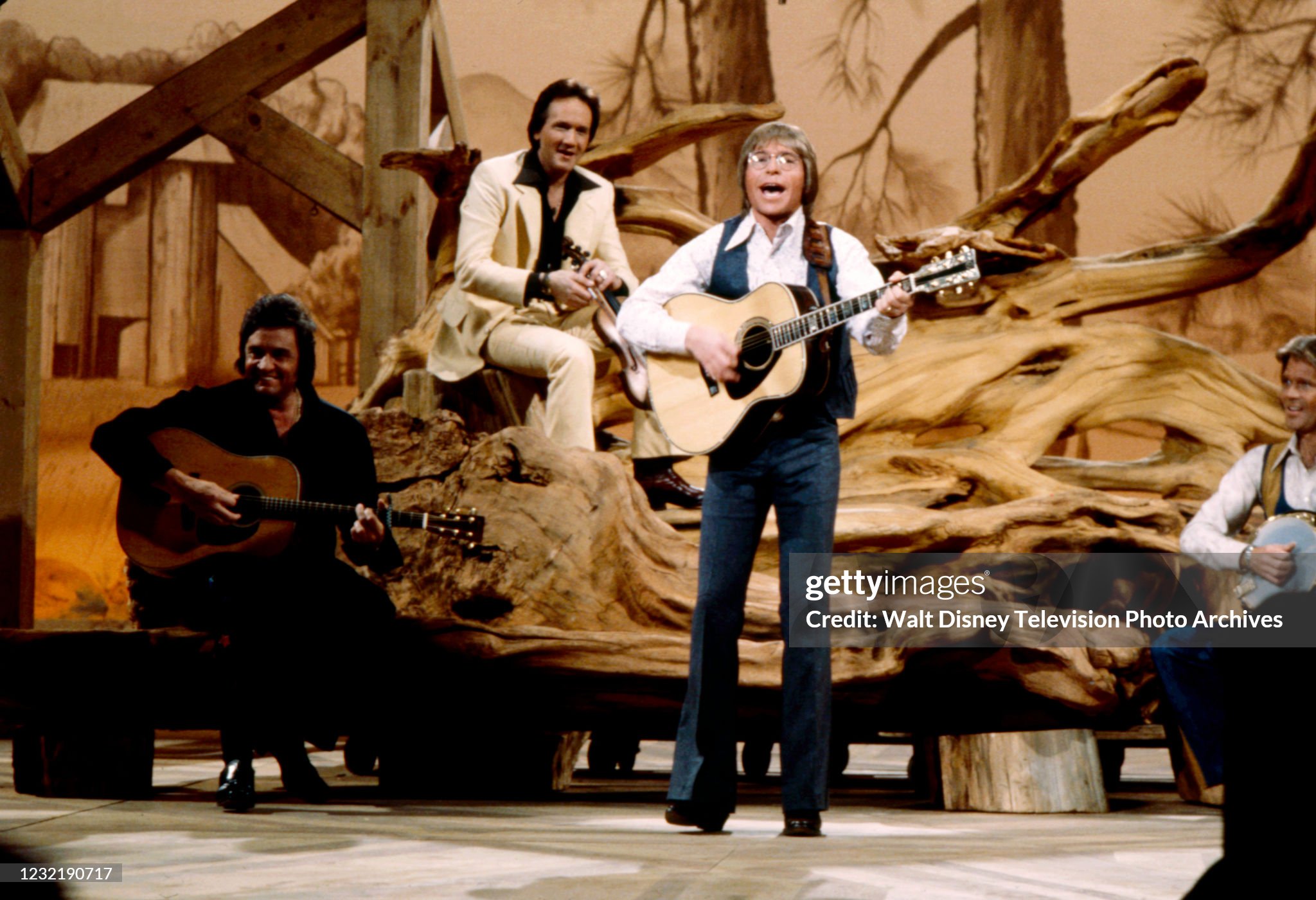
A Delicate Hymn to Love’s Uncertainty and Enduring Hope
Released in 1981 as the title track of his collaborative album Perhaps Love, John Denver’s duet with operatic tenor Plácido Domingo offered an unexpected yet profoundly moving blend of folk sincerity and classical grandeur. Though it did not chart on the Billboard Hot 100, Perhaps Love achieved notable international success, particularly in Europe and Australia, where its emotional gravity and melodic simplicity resonated deeply. The album itself reached the top of the charts in Norway and found enduring life through its global appeal, not least because of the unique artistic partnership at its core.
At a time when Denver’s commercial prominence in the United States was beginning to wane, Perhaps Love marked a turning point—not a resurgence in pop dominance, but a quiet reaffirmation of his essential artistry. Collaborating with Domingo was not merely a novel fusion of genres; it was an artistic decision that revealed something elemental about both men: their shared reverence for beauty, their mutual understanding of emotional nuance, and their belief in music as a vessel for universal truths.
The song itself is striking in its disarming simplicity. With just a piano, strings, and gentle acoustic guitar underpinning it, Perhaps Love unfolds like a conversation between opposites—between worldly wisdom and innocent yearning, between certainty and doubt. The lyrics do not define love so much as they explore its myriad forms. “Perhaps love is like a resting place / A shelter from the storm,” Denver muses in his characteristically unguarded voice, while Domingo responds with operatic weight: “It invites you to come closer / It wants to show you more.” This call-and-response structure gives shape to the emotional duality at the song’s heart.
Here, love is not presented as a fixed entity but as an evolving landscape—part solace, part chaos. Denver wrote the song during a time of personal transition; though he never publicly framed it as autobiographical, one cannot help but sense the tremors of lived experience behind the words. His marriage to Annie Martell was dissolving around this time, and it’s tempting—but not necessary—to hear echoes of that heartbreak in lines like “Love to some is like a cloud / To some as strong as steel.” This tension between fragility and permanence becomes the song’s thematic spine.
Musically, Perhaps Love walks a fine line between folk ballad and art song. Its harmonic structure is deceptively simple—favoring diatonic chords and uncluttered progressions—but within that framework lies a rich emotional palette. The orchestration swells subtly around Domingo’s vocal passages, lending gravitas without overshadowing Denver’s softer tone. It is this interplay—the blending of tonal textures and emotional registers—that elevates the piece beyond mere sentimentality into something far more profound.
More than four decades later, Perhaps Love endures not because it offers definitive answers about love’s nature, but because it dares to ask without shame or irony what love might be. It acknowledges that love can heal or hurt; that it can lift us toward transcendence or leave us hollowed out by longing. And in doing so, it speaks to something deep within us—a hope that even in uncertainty, love remains worth believing in.